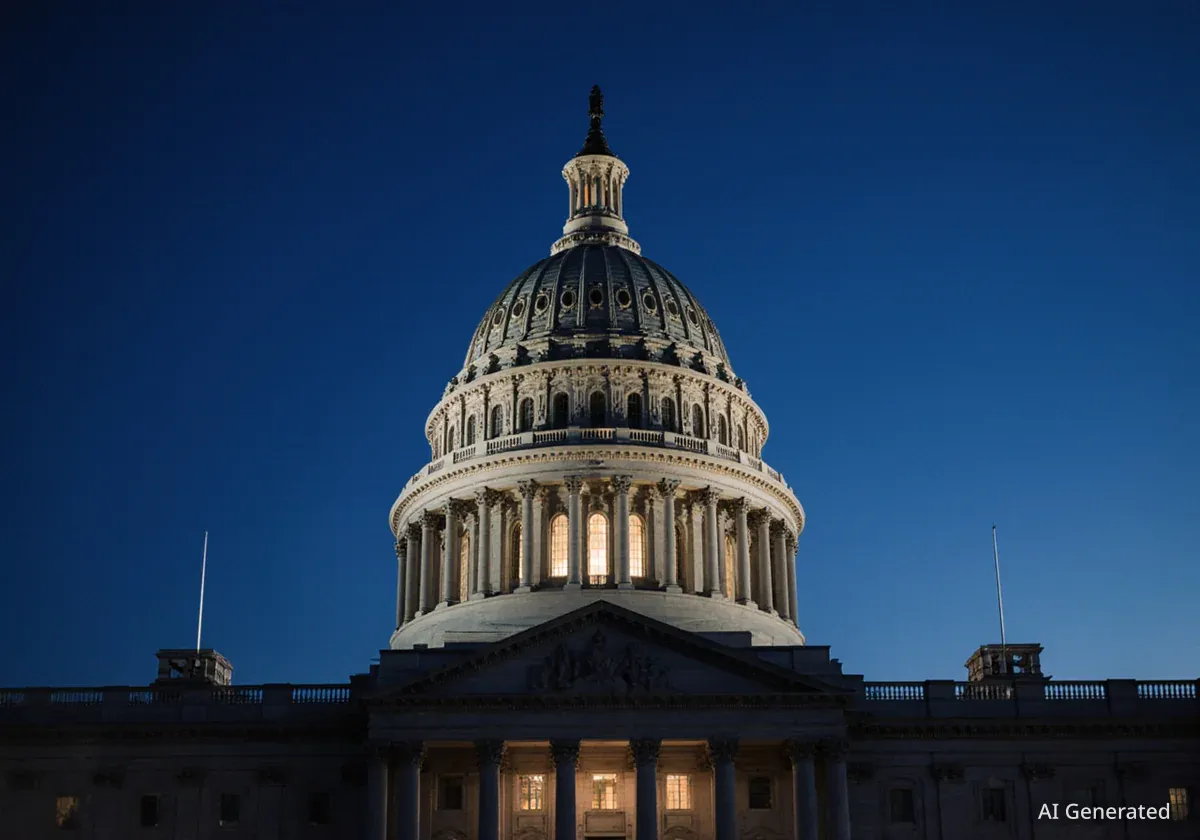Arizona's top education official is urging a swift overhaul of the state's teacher training standards, warning that language related to diversity, equity, and inclusion could put hundreds of millions of dollars in federal funding at risk. State Superintendent of Public Instruction Tom Horne has called on the Board of Education to remove specific terms he believes violate a federal directive.
The move has been met with caution from board members, who have postponed a decision on starting the review process. The debate centers on whether the state's guidelines for educators align with new federal interpretations, with approximately $866 million hanging in the balance.
Key Takeaways
- Arizona Superintendent Tom Horne is pushing to remove DEI-related language from teacher standards.
- An estimated $866 million in federal education funding is potentially at risk.
- Specific phrases like "equitably engage learners" are being targeted for removal.
- The State Board of Education has delayed a decision, requesting more information before proceeding.
A Push for Immediate Change
State Superintendent Tom Horne has voiced concerns that Arizona's professional teaching standards contain language that could conflict with a federal order targeting diversity, equity, and inclusion initiatives. According to Horne, this non-compliance could lead to a significant loss of federal dollars for the state's schools.
"I'm fearful that if we act too slowly, we may get caught in a situation where we can't get it done in time and we're facing the ax from the federal government,'' Horne stated, emphasizing the urgency of the situation. He has proposed forming a committee to immediately begin scouring the existing rules for any potentially problematic provisions.
This push for revision stems from a presidential order requiring states to eliminate DEI references from any programs that receive federal money. Horne, an elected Republican, believes that a proactive approach is necessary to safeguard the state's education budget.
$866 Million at Stake
The total amount of federal funding that Arizona's education system could potentially lose if found non-compliant is estimated to be $866 million. This figure underscores the high financial stakes involved in the debate over teacher standards.
The Language Under Scrutiny
The specific wording under review is part of the standards that guide how teachers create and manage their classrooms. Sid Bailey, an associate school superintendent, identified key phrases that may need to be revised or removed entirely.
One standard requires teachers to manage learning environments to "actively and equitably engage learners." Bailey suggested that the word "equitably" might need to be excised to comply with the federal directive.
Another provision in question states that teachers should communicate in a way that demonstrates respect and responsiveness "to the cultural backgrounds and differing perspectives learners bring to the learning environment." According to Bailey, this entire section may have to be removed.
"When they are culturally sensitive, they dumb down the requirements for the minority kids," Horne argued in a separate interview. "Minority kids can learn just as well as other kids. And you don't need to treat them differently."
Horne also commented on the term "equitable," which he believes has shifted in meaning.
"Now, with the 'woke' philosophies, 'equity' no longer means 'fair,' it means 'equal results by race,'" he said. "And if you have equal results by race, you're rewarding people for what race they belong to rather than what they've accomplished individually."
Board of Education Seeks More Information
Despite the superintendent's urgent warnings, the State Board of Education opted to delay a final decision. At a recent meeting, members voted to revisit the issue in December, citing a need for more clarity before launching a full-scale review of the standards.
Several board members expressed reservations about moving too quickly. Daniel Coor, president of Arizona Western College and a board member, voiced his concern, stating, "I just want to make sure that we're not a solution in search of a problem."
Questions were raised about the composition of the proposed review committee and the specific evidence of non-compliance. Kathleen Weibke, a public member of the board, acknowledged the desire to move forward but stressed the need for a thorough process. "I do think there are a lot of questions," Weibke said. "And what I don't want to do is start working on these standards and then have them changed again."
What Are the InTASC Standards?
The teaching guidelines in question are not unique to Arizona. The state adopted what are known as the Interstate Teachers Assignment and Support Consortium (InTASC) standards in 2011. These standards are used nationwide to guide teacher education and professional development, focusing on ensuring all students can learn effectively. The 2011 revisions emphasized personalized learning and support for diverse student needs.
The Broader Political Context
The debate in Arizona is reflective of a larger national conversation surrounding DEI in education. Associate Superintendent Bailey pointed to a "Dear Colleague" letter issued in February by the U.S. Department of Education's Office for Civil Rights. The letter detailed how the department would interpret the law to prohibit the use of race in educational decisions, calling some DEI programs "insidious."
Furthermore, the federal government sent a request in April for Arizona to certify that it is not using DEI in its programs, reminding the state of the financial penalties for non-compliance. Bailey also noted that deans from the state's three public universities have met with the Arizona Department of Education and reportedly agreed that their current teaching standards need adjustment to align with federal mandates.
The board's decision to wait until December means the debate over the precise language used to train Arizona's teachers will continue, with the state's education funding potentially hanging in the balance.





